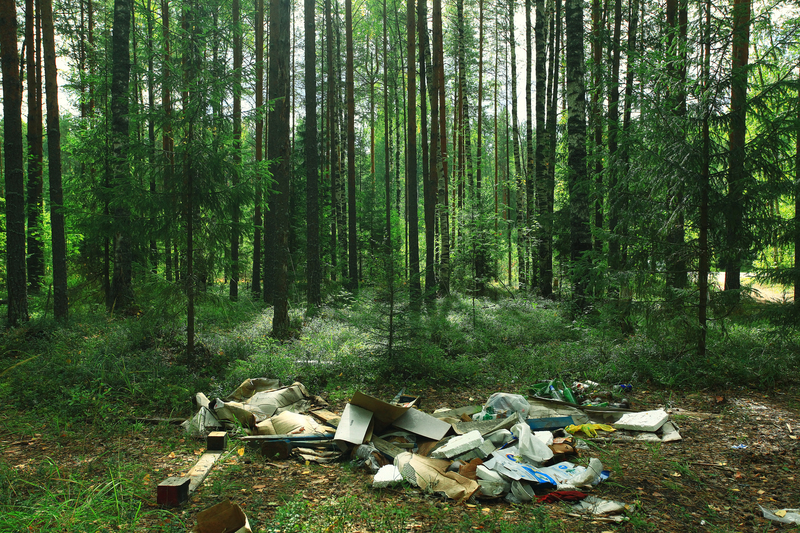Why It's Important to Separate PPE Waste from Regular Trash
Personal Protective Equipment (PPE) like masks, gloves, face shields, and gowns became household essentials during the COVID-19 pandemic. While these items have played a crucial role in protecting public health, the unprecedented surge in their usage has raised questions about their safe and proper disposal. Have you ever wondered why it's so critical to separate PPE waste from regular trash? This article will explore everything you need to know about proper PPE disposal and why it matters for public health, environmental safety, and legal compliance.
Understanding PPE Waste: What Is It?
PPE stands for Personal Protective Equipment, which includes any item worn to minimize exposure to hazards. In the context of everyday life and especially healthcare, this includes:
- Disposable face masks (surgical and cloth masks)
- Gloves (latex, nitrile, vinyl, etc.)
- Face shields and goggles
- Protective gowns and aprons
- Respirators (e.g., N95 masks)
- Certain shoe and hair covers
While these items are intended to stop the spread of infectious diseases, improper PPE waste disposal can ironically contribute to health hazards. Unlike regular trash, PPE waste can be contaminated with infectious agents, chemicals, or even microplastics.

The Environmental Impact of Improper PPE Disposal
Hazardous Pollution from PPE Waste
One of the greatest risks of not separating PPE waste from general rubbish lies in its environmental footprint. Disposable PPE, particularly face masks and gloves, are usually made with non-biodegradable polymers like polypropylene. When PPE is disposed of with regular household waste, it often ends up:
- In landfills, where it can take hundreds of years to decompose
- As litter in public places, which can be carried into rivers and oceans
- Burned in incinerators, potentially releasing harmful toxins if not managed correctly
Discarded PPE can break down into microplastics, contaminating soil and water sources, and entering the food chain via marine life. The sheer volume of PPE waste generated since 2020 is staggering--according to the United Nations, an estimated 75% of used masks and gloves will end up in landfills or floating in the seas.
Threats to Wildlife and Ecosystems
Wildlife can mistake brightly colored masks or gloves for food, leading to ingestion, choking, or entanglement. This is another compelling reason why PPE waste should not be mixed with everyday trash. Ingestion of plastic fibers from masks and gloves can cause injury or death to marine animals and birds. Moreover, harmful substances released from decomposing PPE can disrupt aquatic ecosystems.
Public Health and Safety Concerns
The Risk of Disease Transmission
Perhaps the most urgent reason to keep PPE waste separate from household trash is the ongoing risk of infection. Used PPE, especially from healthcare settings or individuals with known illnesses, can be contaminated with pathogens like viruses, bacteria, or fungi. When this waste is mixed with landfill-bound rubbish, sanitation workers and waste pickers handling the waste are at risk of exposure.
- Cross-contamination: PPE tossed in regular bins can become a source of infection for waste handlers and communities, especially if bags split open.
- Spread of disease: If PPE is not disposed of properly, it could worsen outbreaks by facilitating the indirect spread of contagious diseases.
- Improper reuse: Sometimes, well-meaning but untrained individuals may reuse discarded PPE found in public spaces, leading to severe health risks.
Healthcare waste management guidelines like those from the World Health Organization (WHO) and Centers for Disease Control (CDC) emphasize strict separation of infectious waste from regular trash. This practice should be followed in homes and businesses as well, especially during and after pandemics.
Worker Protection and Legal Compliance
Sanitation teams and waste management workers are on the front lines of our fight against pandemics and pollution. By failing to separate PPE waste, we expose these essential workers to potential infection, legal liability, and hazardous materials. Several regions have laws mandating the separate collection and disposal of medical and PPE waste--non-compliance can result in fines or even criminal charges for institutions.
How to Properly Dispose of PPE Waste
Best Practices for Households
Everyone must take responsibility for safely disposing of PPE. Here's how you can do your part as an individual or household:
- Designate a separate bin: Use a clearly-marked container with a lid specifically for used masks, gloves, and other PPE. Avoid mixing with recyclables or compost.
- Seal the waste: Put PPE in a sturdy plastic bag, tie it securely, and follow local guidelines for handing it to waste collectors.
- Do not recycle: PPE is generally not recyclable through standard household recycling streams. Recycling facilities are not equipped to sanitize infectious materials.
- Wash hands after handling: Always wash or sanitize your hands after disposing of PPE waste to prevent unintentional contamination.
Protocols for Businesses and Healthcare Settings
Organizations, especially those in healthcare, hospitality, and retail, should implement stricter protocols for PPE disposal:
- Provide labeled bins: Make clearly-marked waste receptacles available for staff and customers.
- Staff training: Regularly train employees on the correct way to handle and dispose of PPE waste.
- Partner with specialist waste firms: Employ licensed medical waste disposal services that comply with local and federal regulations.
- Documentation: Maintain records of PPE waste management as mandated by health and safety regulations.
By following these steps, institutions can minimize liability, protect employees and the public, and support eco-friendly waste management practices.
Why Is It Important to Separate PPE Waste from Regular Trash? Key Reasons Summarized
Environmental Protection Benefits
- Prevents microplastic pollution and chemical leaching into soil and water
- Reduces harm to wildlife and supports more effective recycling programs
- Helps authorities better manage the growing PPE waste crisis
Enhanced Public Health and Safety
- Keeps infectious materials isolated, lowering the risk of community transmission
- Protects sanitation and waste management workers from biohazards
- Prevents the potential for illegal or unsafe reuse of PPE
Legal and Corporate Responsibility
- Demonstrates compliance with local and international waste regulations
- Reduces company liability and improves worker safety
- Enhances organizational reputation and public trust
Frequently Asked Questions About PPE Waste
Can PPE be recycled?
Most disposable PPE, like masks and gloves, cannot be recycled via regular recycling programs because of contamination risks and their material composition. Specialized recycling options have emerged in some areas, but these require clean, non-infectious PPE and should not be used for items already exposed to pathogens.
What happens if PPE waste is mixed with regular trash?
PPE waste mixed with general rubbish either ends up in landfills or is incinerated. In both scenarios, the risks include environmental pollution, wildlife endangerment, and potential spread of disease to waste handlers and the wider community.
Are there penalties for improper PPE waste disposal?
Regulations vary by country and region, but institutions can face fines, reputational harm, or even criminal liability if they fail to comply with waste segregation laws, especially for infectious or hazardous medical waste.
Steps for Governments and Communities to Manage PPE Waste
Governments and local bodies play a crucial role in PPE waste management. Effective steps can include:
- Public awareness campaigns on the importance of separating PPE waste
- Provision of special PPE waste bins in public spaces, transport hubs, and businesses
- Development of dedicated PPE recycling or safe disposal facilities
- Establishment and enforcement of regulations regarding the collection and treatment of infectious waste

The Future of PPE Waste Management
Innovators and environmentalists are working on biodegradable and reusable alternatives to single-use PPE. Until these become widely available, separation and safe disposal remain key. New policies and recycling technologies are in development, but successful PPE waste management depends on everyone's cooperation--from individuals to multinational corporations and governments.
Conclusion: Our Joint Responsibility
Separating PPE waste from regular trash is far more than a matter of convenience--it is a responsibility that protects human health, preserves the environment, and ensures legal and ethical compliance. By being mindful of how we dispose of our masks, gloves, and other protective gear, we are not only reducing immediate public health risks but also securing a cleaner, safer planet for future generations.
Let's prioritize proper PPE waste disposal in our homes, workplaces, and communities. Together, we can make a significant impact in combating pollution and safeguarding public health.